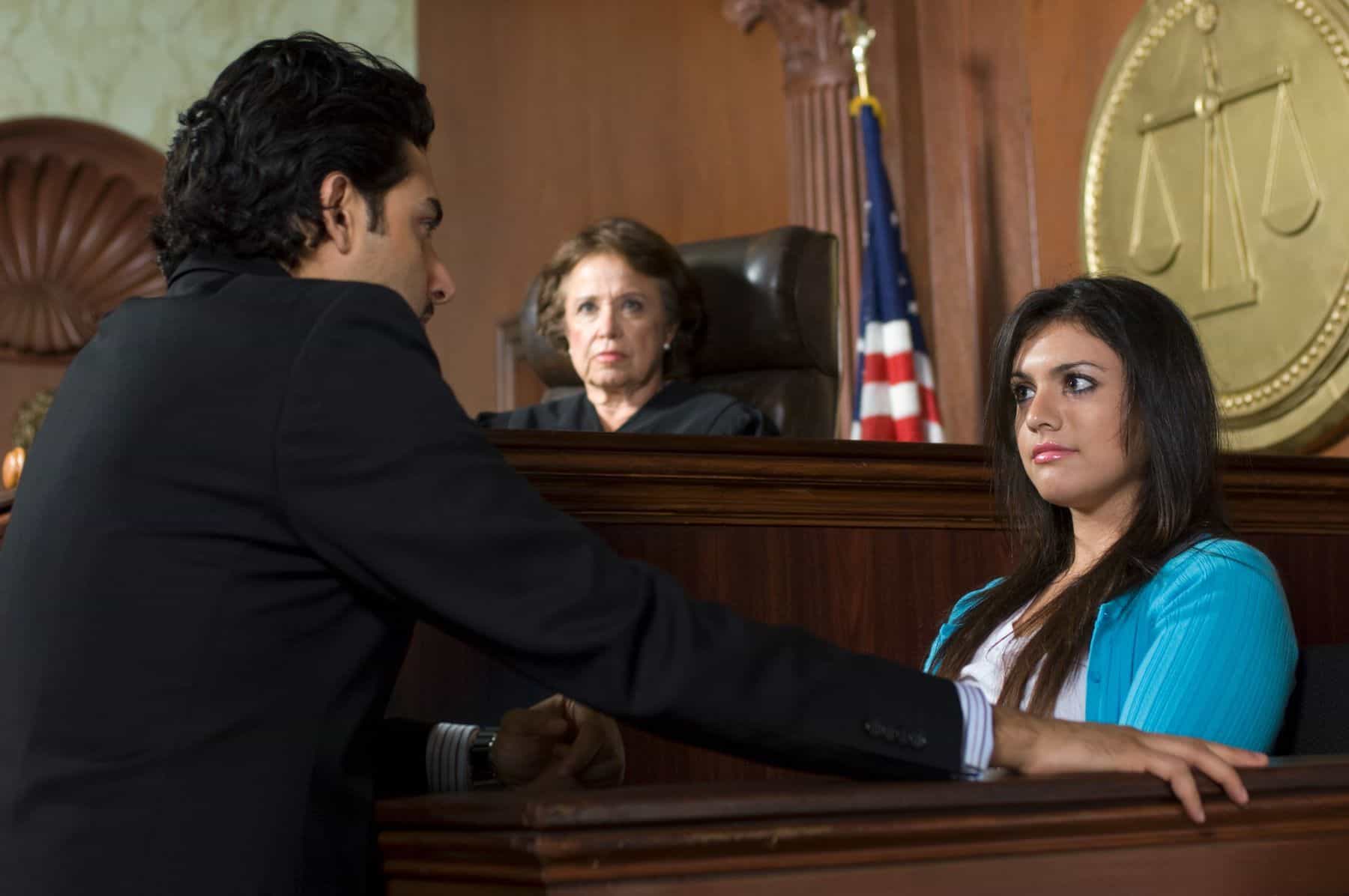The Daubert Standard
An overview of the complexities of the Daubert standard, the set of criteria used to determine the admissibility of expert witness testimony in federal court.
Updated on
No matter how useful an expert witness’s testimony may be to your case, the testimony is of little value if a judge declines to admit it at trial. That is why the first and most important (yet often overlooked!) step in retaining an expert witness is determining whether their testimony will overcome your jurisdiction’s evidentiary standard. For the federal court system and a vast majority of the states, this standard is referred to as the Daubert standard. For any attorney, it is necessary to become well-versed in the intricacies of the Daubert standard, to ensure that your expert testimony is admitted at trial.
What is the Daubert Standard?
Also known as “the Daubert Test”, the Daubert Standard is a rule used in courts to evaluate the admissibility and reliability of expert witness testimony.
In 1993, the United States Supreme Court decided the seminal case, Daubert vs Merrell Dow Pharmaceuticals, Inc., 509 U.S. 579 (1993) which set a new standard for the admissibility of expert testimony. The case was ground-breaking, as it reflected a deviation from the long-followed standard established in Frye v. United States, 293 F. 1013 (D.C. Cir. 1923).
In Frye, the Circuit Court held that an expert opinion is admissible if the scientific technique on which the opinion is based is “generally accepted” as reliable in the relevant scientific community. The decision in Daubert effectively overruled this holding, instead providing a non-exhaustive list of factors (including general acceptance in the scientific community), that the courts may consider when deciding whether to admit expert testimony.
What are the 5 Daubert factors?
Under the Daubert standard, the court provided guidelines for determining whether an expert’s methodology is valid. The daubert guidelines consist of five factors of consideration:
- Whether the expert’s technique or theory can be tested and assessed for reliability
- Whether the technique or theory has been subject to peer review and publication
- The known or potential rate of error of the technique or theory
- The existence and maintenance of standards and controls
- Whether the technique or theory has been generally accepted in the scientific community
These criteria intend to prevent unreliable or otherwise “junk science” from being heard as evidence in an expert’s substantive testimony. The burden is on the proponent of the testimony to establish its admissibility by a preponderance of proof.
Junk Science and the Daubert Standard
It is important to note that the Daubert Court specifically contemplated that the word “science” in the rule implies that science is based on knowledge obtained through the application of the scientific method. The goal is to weed out more theoretical or experimental science, sometimes referred to as “junk science.”
This is primarily accomplished by generating hypotheses and testing them to see if they can be falsified. So although Daubert’s progeny extends to all expert testimony, it is essential to keep in mind that not all so-called “scientific” or specialized opinions are actually based on scientific or tried-and-true tested areas of expertise.
What is the Daubert Litmus Test?
To effectively admit testimony under Daubert, it is important to keep in mind the purpose of each of the five enumerated daubert factors:
Whether the technique or theory can be tested and assessed for reliability
The first and foremost question under this factor is whether the expert based its conclusion on sufficient facts or data, and whether the conclusion is the product of reliable principles and methods reliably applied to the facts of the case. The focus is on methodology, rather than solely conclusions.
Peer review and publication
Peer review is the evaluation of a scientific work by others that are experts within the same field. The purpose of peer review is to ensure that only valid, reliable research is published. The reviewers of such research provide suggestions to the authors on how to improve the quality of their work before it is published in any scientific journal or scholarly publication. Therefore, peer review can help ensure the reliability and validity of an expert’s methodologies.
The known or potential rate of error of the technique or theory
To determine how accurate an expert’s method is likely to be, the court must examine the methodology for flaws that may produce errors. If the expert is unable to provide a numerical error rate, the court is unable to analyze the likelihood of error, potentially rendering the evidence inadmissible.
Maintenance of standards and controls
Similar to potential rates of error, if an expert can provide the existence and maintenance of standards and controls of their testing, the more likely a court will deem the methodology reliable.
General acceptance in the scientific community
Lastly, the Frye standard of general acceptance in the scientific community still has a place in expert admissibility. Although not a be-all-end-all factor, especially when it comes to novel scientific ideas, an opinion that is not generally accepted may raise concerns for the court.
The History of Daubert’s Trilogy
When the Supreme Court crafted the Daubert standard, it was a precedential turning point. However, the current standard, though founded by the Daubert Court, is also deeply rooted in its progeny. Referred to as the Daubert trilogy, the two cases that came after Daubert greatly contributed to the final standard used today to admit expert testimony.
While the Court in Daubert enumerated the factors to be considered when evaluating the reliability of expert testimony, General Electric Co. v. Joiner, 522 U.S. 136 (1997) addressed the appellate standard of review of a trial court’s admissibility ruling.
Finally, Kumho Tire Co. v. Carmichael, 526 U.S. 137 (1999), the Court applied the Daubert standard to nonscientific expert testimony. Taken together, these three cases have crafted the current standard for expert testimony admissibility.
Daubert v. Merrell Dow Pharmaceuticals

In Daubert v. Merrell Dow Pharmaceuticals, Inc., 509 U.S. 579 (1993), the petitioners asserted serious birth defects were the result of the mother’s prenatal use of Bendectin. The petitioners had offered testimony about Bendectin causing birth defects based on chemical structure analyses, animal studies, and the reanalysis of previously published studies. The lower court dismissed the case on summary judgment, however, as petitioners had not established the premise Bendectin caused birth defects in humans met the “general acceptance in the scientific community” standard.
The court reviewed the Frye Standard along with Federal Rule of Evidence 702, noting nothing in Rule 702 requires general acceptance as a precondition of admissibility. The Supreme Court effectively overruled Frye in federal courts and instead noted that when scientific testimony is offered, the court must assess whether the testimony is based on scientifically valid methodology. Ultimately, Daubert overrode general acceptance as the central criteria for admissibility.
General Electric Co. v. Joiner

The holding in General Electric Co. v. Joiner, 522 U.S. 136 (1997), a toxic tort case that excluded the plaintiff’s expert witnesses, is significant in two ways. First, Joiner clarified the holding in Daubert that expert methodology, as opposed to the conclusion, should be the focus of the inquiry. While acknowledging the importance of an expert’s techniques, Joiner noted that “conclusions and methodology are not entirely distinct from one another.” As the Joiner Court explains:
Trained experts commonly extrapolate from existing data. But nothing in either Daubert or the Federal Rules of Evidence requires a district court to admit opinion evidence which is connected to existing data only by the ipse dixit [unsupported statement] of the expert. A court may conclude that there is simply too great an analytical gap between the data and the opinion proffered.
Although Daubert stressed the importance of methodology, rather than the accuracy of an expert’s conclusion, Joiner narrowed this line of analysis. While admissibility is not solely hinged on an expert’s ability to reach an accurate conclusion; Joiner holds that there must nonetheless be a link between the expert opinion and available data.
The Joiner court also set the standard of review, holding that the abuse of discretion is the proper standard of review for the district court’s expert testimony evidentiary rulings. As Joiner explained, “while the Federal Rules of Evidence allow district courts to admit a somewhat broader range of scientific testimony that would have been admissible under Frye, they leave in place the ‘gatekeeper’ role of the trial judge in screening such evidence.” Joiner “rejected the notion propounded by several circuits that they should engage in especially stringent review of decisions excluding scientific evidence proffered by plaintiffs in toxic tort and product liability cases.”
Kumho Tire Co. v. Carmichael

Less than one year after its holding in Joiner, the Supreme Court decided Kumho Tire Co. v. Carmichael, 526 U.S. 137 (1999), which expanded the Daubert standard to include not just scientific testimony but also any testimony that involved “technical, or other specialized knowledge” as specified in Rule 702. Since the holding in Daubert, a split had developed among the circuit courts as to whether the factors could be used to determine the admissibility of other disciplines or expertise, such as economics, psychology, and other “soft sciences”. Because Daubert focused on the reliability and methodology of the evidence, some courts believed it only applied to strictly scientific techniques that could be easily tested. But the Court found no relevant distinction between experts who rely on scientific principles and those who rely on “skill- or experienced-based observation,” noting that Rule 702 makes no distinction between the two. Therefore, the Kumho Court held that the Daubert factors for relevance and reliability may be applied to all expert testimony.
Admissibility of Scientific Evidence Under the Daubert Standard
The holding in Daubert was developed in order to be more in line with Rule 702 of the Federal Rules of Evidence, which focused on reliability and relevance in determining expert admissibility. Per Rule 702, a witness “who is qualified as an expert by knowledge, skill, experience, training or education” may testify as to their opinions if the proponent of their testimony demonstrates that it is more likely than not that:
- The expert’s scientific, technical, or other specialized knowledge will help the trier of fact to understand the evidence or to determine a fact in issue;
- The testimony is based on sufficient facts or data;
- The testimony is the product of reliable principles and methods; and
- The expert's opinion reflects a reliable application of the principles and methods to the facts of the case.
In light of Rule 702, the Daubert court reasoned that whether an opinion was generally accepted in the scientific community was all but one factor to consider, instead emphasizing the importance of the methods the expert used to arrive at scientific conclusions rather than the conclusions themselves. This emphasis leads judges to ask specific 'Daubert questions' to evaluate the scientific validity of the testimony.
The Daubert Challenge
A Daubert challenge seeks to exclude an expert’s testimony on the basis that it is not reliable or relevant under Rule 702 of the Federal Rules of Evidence. A Daubert challenge is one of the strongest legal mechanisms opposing counsel can use to discredit the validity of an expert’s testimony, and possibly have it excluded altogether. Thus, executing a Daubert challenge against an opposing party can be the deciding factor in whether you win or lose a case.
Daubert challenges can be made in many forms, including:
- A separate motion
- As part of summary judgment
- A motion in limine
- As an objection made at the time the testimony is given
- In a post-trial motion
An expert’s testimony can be excluded if the expert fails to meet the requisite level of expertise, if they present unqualified evidence, or if they use questionable methods to obtain data.
Launching a Successful Daubert Challenge

If you are filing a Daubert motion against your adversary, the first step is understanding the opinion and the basis on which it is formed. A critical analysis is necessary to ensure that the opinion is challenged in a meaningful way. It is also important in understanding which aspect of the opposing expert’s arguments is incorrect or contradicting to your side’s position. All key ideas, methods, and assumptions used in the opposing expert’s opinion should be analyzed to determine where the two parties diverge. It is not always as straightforward as simply stating that all aspects of your adversary’s analysis are incorrect.
The methodology of an opposing expert’s opinion should be the first aspect to be critiqued. The ways in which a specific methodology can be challenged are as innumerous as the fields of expertise themselves. Was the type of testing conducted done correctly? If the type of testing was correct, is the potential rate of error accurate? Does peer review and the opposing expert’s general acceptance in the scientific community factor in? Or were there inconsistent methodologies utilized throughout (i.e., different methods of measurement used at different parts of the experiment)? By focusing on the weaknesses or inconsistencies in the opposing expert’s methodologies, a challenge becomes substantively stronger and more persuasive.
Expert Institute’s Expert Radar Service is a useful tool in determining the reliability of an expert, as it provides a deep dive into the witness’s qualifications, background, litigation history, Daubert challenges, as well as reviews relevant court documents.
Defending Against a Daubert Challenge
If you are on the other side of a Daubert challenge and find yourself defending your expert, it is equally important to keep the five factors in mind. The best preparation for a Daubert challenge occurs way before the opposing party even knows the identity of your expert. Ideally, the enumerated factors that a court may consider in evaluating the testimony’s admissibility should be in the back of your mind before you even sign your expert’s retainer agreement. As Abigail Williams of Abigail Williams & Associates, PC emphasizes:
The most important way to prevent a Daubert challenge against your own expert is to make sure that you are familiar with the relevant scientific literature that he or she is relying upon. Make sure that his/her opinion reflects that body of literature. If your expert’s position is that the body of scientific literature does not apply to any given case then he/she must identify specifically why it does not apply and why their opinion goes against what is generally accepted.
It is likewise important to be mindful of the judge’s history.
As Laurence Deutsch of North & Deutsch LLP points out:
All in all, Daubert challenges remain a robust feature of Federal practice. And, though the related “Frye” doctrine is occasionally applied in New York malpractice cases, it tends not to be a regular feature of New York malpractice cases. In practice, most New York malpractice Judges can be persuaded (unless testimony is truly “off the charts”) to defer to the Jury’s evaluation of expert reliability.
Although Daubert motions can be raised at any point, they are often made prior to the commencement of trial, with the arguably strongest and most researched motions being in written form. Like any persuasive opposition, your response should be tailored to opposing counsel’s points. Not all Daubert motions are blanket requests for exclusion, but rather, may take issue with only one or some of the expert’s testimony. First, opposing counsel may challenge the relevancy of your expert under Rule 702. In this case, the opposition should argue that the expert’s knowledge is needed to help the trier of fact to understand the evidence or to determine a fact in issue.
The opposing party’s allegations against your expert will largely be based on the expert’s report provided prior to trial. Under Rule 26 of the Federal Rules of Civil Procedure, expert witnesses must disclose to the opposing party a report previewing the expert’s proposed testimony. The report must contain “all opinions the witness will express and the basis and reasons for them.” Opposing counsel may allege that the methods used by the expert are not reliable, or may take issue with certain aspects of the testimony. Particularly in cases where the expert is submitting a slew of complex, scientific opinions, it is helpful to concentrate on the exact piece of the report that opposing counsel finds questionable.
How To Minimize Chances of a Daubert Challenge

Overall, you want to select qualified experts whose opinions have support in the relevant scientific community. As Rudy Robinson of Austin Valuation Consultants advises:
Be sure to ask if there is a theme of the case. Discuss in advance with the counsel for the client what he or she thinks are the most important strengths and weaknesses of your opinions relative to the theme. Be familiar with the opposing expert’s opinions. Be prepared to address areas of weakness in that expert’s report or opinion. Ask questions about the reputation, prejudices, and mannerisms of the judge, jurors, opposing experts, etc.
At Expert Institute, our Expert Search Service helps you engage with professionals who match all of your requirements for litigation experience, specialty area, professional credentials, certifications, location, and fee range. Each expert in our network of 3+ million expert witnesses undergoes a stringent vetting process, ensuring an impeccable track record and exceptional performance during deposition and cross-examination.
Key Takeaways
Overall, the Daubert standard, which was not always uniformly followed throughout the country, has become the common standard.
Only five states do not use Daubert, with 16 states using a modified approach to the holding. As Daubert continues to proliferate and gain momentum throughout the court systems, it is highly likely that it will remain the seminal approach to expert testimony admissibility for a long time to come.
Therefore, it is incumbent upon legal practitioners to familiarize themselves with the standard, as well as stay up-to-date on ways to successfully utilize the standard when admitting (or trying to exclude) expert testimony.
About the author
Anjelica Cappellino, J.D.
Anjelica Cappellino, Esq., a New York Law School alumna and psychology graduate from St. John’s University, is an accomplished attorney at Meringolo & Associates, P.C. She specializes in federal criminal defense and civil litigation, with significant experience in high-profile cases across New York’s Southern and Eastern Districts. Her notable work includes involvement in complex cases such as United States v. Joseph Merlino, related to racketeering, and U.S. v. Jimmy Cournoyer, concerning drug trafficking and criminal enterprise.
Ms. Cappellino has effectively represented clients in sentencing preparations, often achieving reduced sentences. She has also actively participated in federal civil litigation, showcasing her diverse legal skill set. Her co-authored article in the Albany Law Review on the Federal Sentencing Guidelines underscores her deep understanding of federal sentencing and its legal nuances. Cappellino's expertise in both trial and litigation marks her as a proficient attorney in federal criminal and civil law.
Subscribe to our newsletter
Join our newsletter to stay up to date on legal news, insights and product updates from Expert Institute.
Sign up nowA Sample Voir Dire: How To Qualify An Expert Witness
Download free white paperChallenging Opposing Experts: Advanced Research Techniques
Download free white paperCross Examining Expert Witnesses: The Ultimate Guide
Download free white paper
Subscribe to our newsletter
Join our newsletter to stay up to date on legal news, insights and product updates from Expert Institute.



